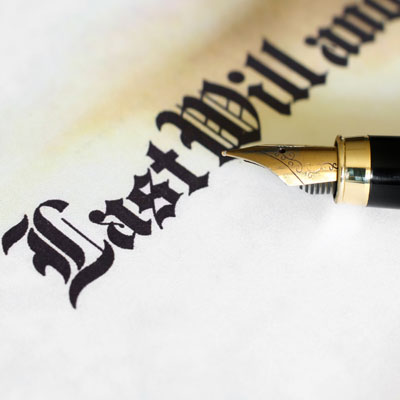Handwritten wills are legal in Pennsylvania if they meet certain requirements. The main requirement is for it to be signed. Even a will written by the hand of the testator, meaning the person whose estate is being regarded in the document, is invalid without an acceptable signature. Pennsylvania state code makes no distinction about whether the will must be handwritten or typewritten, as long as the will is in writing, as opposed to a verbal agreement or a family-recognized understanding.
Signature Specifics
A will that has been prepared in the handwriting of the testator, but lacks a signature or acceptable signature mark, is considered a holographic will and is invalid in many states, including Pennsylvania. In addition to the signature requirement, the code also establishes that the law does not honor anything that appears after the signature. Therefore, adding written addendums is not a legally binding practice.
Besides a valid signature, a legal will has two major requirements. For a will to pass legal muster, the testator must be at least 18 years of age and of sound mind when executing the will. The age of the testator is pretty straight forward, but the sound mind distinction has been a major issue when it comes to many contested wills. This requirement is meant to avoid someone unknowingly bequeathing certain assets or being coerced into assigning beneficiaries of their accumulated wealth.
Go Beyond What is Required
Pennsylvania does not require that a will be signed by a witness. Yet, in contested circumstances, a written will with no witness signature may be overruled and left to the courts to distribute the assets of the estate, according to the laws of intestacy; meaning that the person essentially died without a legitimate will. While it is not required, it is best to have a witness or two sign your will. It is especially smart to ensure that your witness be someone not named in the will to deflect any suspicion that they have reason to misrepresent their position as a witness to the document. In some states, the will’s beneficiaries are prohibited from serving as witnesses.
Special Circumstances
If a testator is too sick or frail to physically write their own will, it is permissible for someone else to write up the document instead. In Pennsylvania, this stand-in person may even sign the will for the incapacitated testator. For a will to be recognized as valid, the proxy signature should be witnessed by two people that can attest that the testator gave their consent to the surrogate. Likewise, a mark made by the testator in lieu of a proper signature should be witnessed in the same manner.
West Chester Wills and Estates Lawyers at Eckell Sparks Assist with Preparing and Executing Wills
It makes sense to enlist a professional when preparing a document as consequential as your will. Likewise, families who are contesting the legitimacy of a relative’s will can use the help of a knowledgeable West Chester wills and estates lawyer at Eckell, Sparks, Levy, Auerbach, Monte, Sloane, Matthews & Auslander, P.C. For a free consultation, call us at 610-565-3701 or contact us online. Located in Media and West Chester, Pennsylvania, we serve clients throughout Delaware County, Chester County, and Montgomery County.

